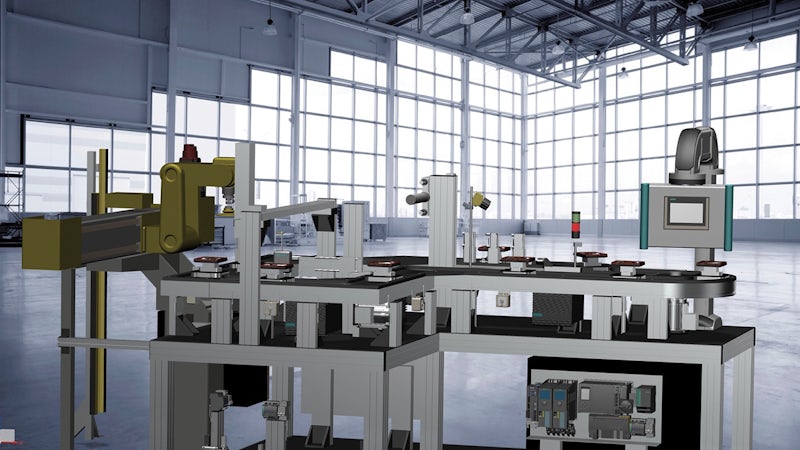Oakland University uses Siemens Digital Industries Software tools to provide experiential learning and connect students with companies
Plant Simulation internship program gives Oakland University students real-world throughput simulation expertise
Oakland University
Oakland University’s Industrial and Systems Engineering department offers undergraduate and graduate degree and certificate programs in industrial and systems engineering, engineering management, and systems engineering with a strong focus on Industry 4.0. Many working engineers enroll in their master’s programs since all graduate courses are offered in the evenings, with some also offered online.
http://oakland.edu/ise- Headquarters:
- Rochester, Michigan, United States
- Products:
- Insights Hub, General, Teamcenter, Tecnomatix
Since we integrated Plant Simulation into our program, a wide variety of companies have contacted me requesting help to fill fulltime throughput simulation positions. And with the launch of the Plant Simulation internship program, we expect that number to grow.
ISE Department Oakland University
Preparing engineering students for Industry 4.0
Located in Rochester, Michigan, Oakland University is a public university whose School of Engineering and Computer Science is a major driver in the institution’s growing reputation. The school’s Industrial and Systems Engineering (ISE) department was founded in 2005 and features undergraduate, masters and doctorate level programs in industrial and systems engineering, engineering management, and systems engineering.
The ISE department became a Siemens Digital Industries Software academic partner in 2011. Since then, the department has integrated several tools from Siemens Digital Industries Software’s Tecnomatix® portfolio, including Plant Simulation, Jack™ software and Process Simulate Robotics as well as solutions from the Teamcenter® software portfolio, into undergraduate and graduate engineering courses. And the ISE department is currently integrating Insights Hub, the industrial IoT solution from Siemens, along with Opcenter® suite into some courses which are all part of the Siemens Xcelerator business platform of software, hardware and services.
Several ISE department graduates have secured full-time positions with well over a dozen companies working on various aspects of Industry 4.0, with approximately 10 of those companies hiring Oakland University students for their knowledge of Plant Simulation. Due to the use of Plant Simulation and other Siemens Digital Industries Software tools, the academic partnership program has helped Oakland University develop relationships with many companies who were previously unaware of the ISE department’s programs.
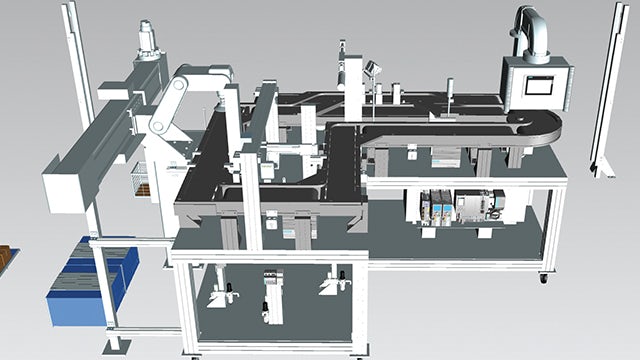
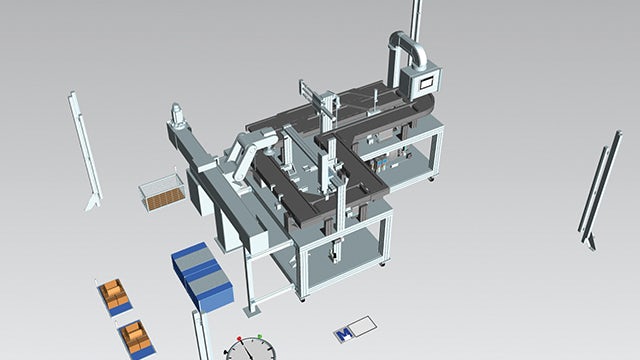
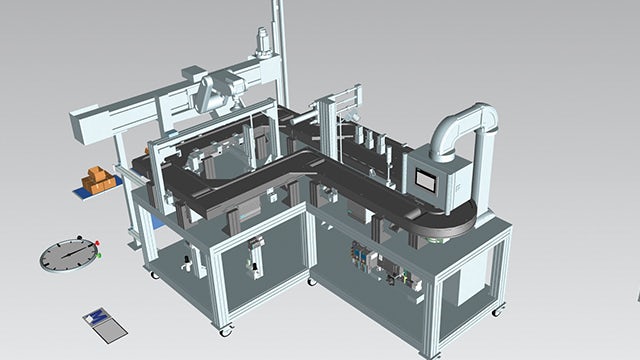
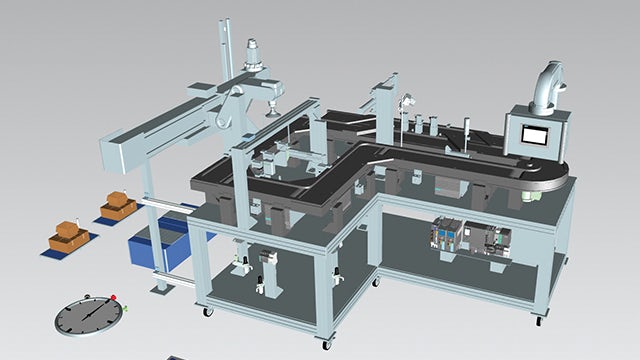
Creating a hands-on throughput simulation course
After using Plant Simulation in some existing courses, the ISE department found that many students, as well as the companies hiring its graduates, suggested the development of a new course that takes a deeper-dive into the use of the tool and its application. This led to the creation of a new half-semester course titled PLM Applications - Throughput Simulation. The course combines education with some training, teaching students to operate Plant Simulation and use the tool to complete various hands-on throughput simulation assignments.
With discrete event simulation of manufacturing and other systems becoming increasingly vital to industry, the course focuses on using Plant Simulation to build, run and analyze discrete event simulations of systems and to present the results. Students learn about the creation and usage of a digital twin to reduce risk and return value. The course covers requirements analysis, model creation, validation, and a “what if” analysis.
To better serve working engineers the course is offered in the evenings. Robert Van Til, Pawley professor and chair of the ISE department says, “A large percentage of students in our masters’ programs are full-time working engineers since all graduate courses are offered in the evenings. We also get working engineers taking this course as well as other PLM-related courses as non-degree students.”
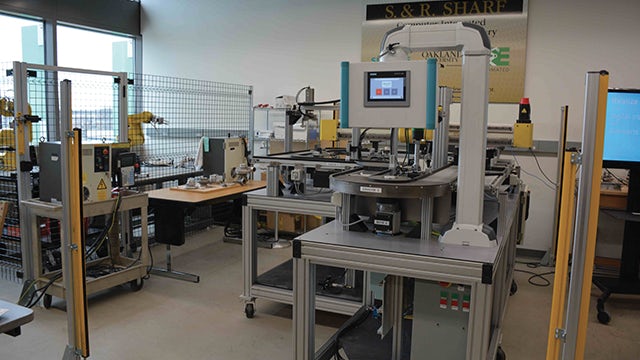
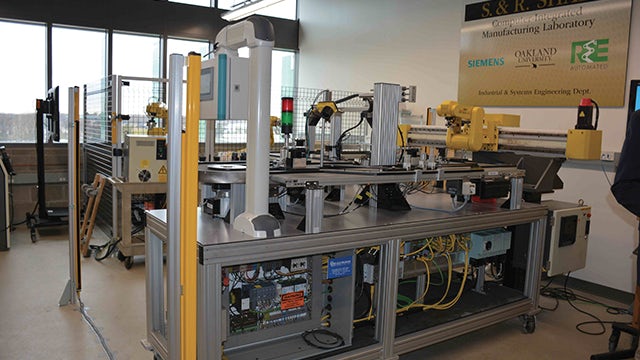
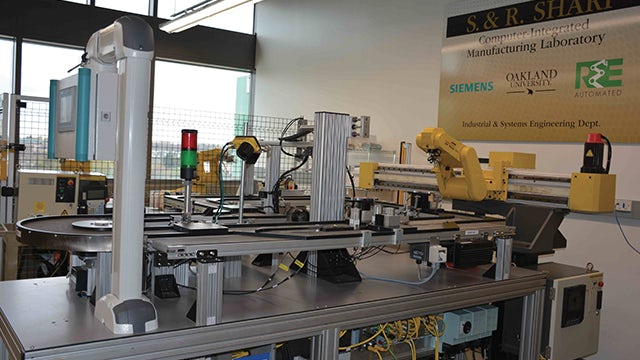
Experiential learning through the Plant Simulation internship program
Experiential learning allows students to take the concepts and techniques learned in the classroom and apply them to realworld problems in an industrial environment. Through the Plant Simulation internship program, Oakland University’s ISE students participate in experiential learning. The paid internship program consists of four parts:
The ISE department works with companies to recruit and interview ISE students to serve as a Plant Simulation intern, with the company making the final selection
The intern is paid to take the PLM Applications - Throughput Simulation course to learn Plant Simulation during the fall semester. The company also selects a throughput simulation project for the intern, in consultation with ISE faculty members, during the fall semester
The intern is paid to work part-time on the throughput simulation project under company supervision with the assistance of an ISE faculty member during the winter semester, approximately 12 to 15 hours per week. The intern works on the project either in Oakland University’s Product Lifecycle Management (PLM) laboratory or at the company’s facility while taking classes. If the intern works primarily at Oakland University, he or she will still spend time at the company’s facility to learn about the system being modeled, collect data, etc.
The intern is paid to work on the project full-time during the summer, again either in Oakland University’s PLM Laboratory, at the company’s facility or at a mixture of the two locations
The internship program was piloted during the 2018-19 school year. Plant Simulation interns were placed at an aerospace company and an automotive original equipment manufacturer (OEM).
Oakland ISE undergraduate student Brianna Walters’ internship project at an aerospace company focuses on using Automated Guided Vehicles (AGV) and Mounted Robot Guided Vehicles (MRGV) to move parts and tools through a job shop type model. Walters notes, “The company initially had me using my Plant Simulation model to explore the software and its capabilities. Next, we plan to look at machine and transporter utilization.”
While Walters was originally scheduled to serve her internship during the summer of 2019, the company was so impressed by her work that they have hired her to a full-time engineering position.
Another ISE undergraduate student, Mick Packard, is interning at an automotive OEM. His project involves several steps:
1. Shadow company and Siemens team members during initial weeks, observing the business actions and practices of the group while continuing to build on knowledge of Plant Simulation and model design techniques.
2. Create a digital twin model of an engine block machining line, then validate the model to a level of statistical significance while meeting key performance standards.
3. Run pallet optimization tests and buffer sensitivity analysis using the model.
4. Design “what if” scenarios based on optimizing line performance.
5. Create a report on the project; breaking down the process of building the model, features included in the model for re-usability and continued tests, accuracy of model, results of “what if” scenarios, as well as challenges and struggles.
6. Finally, present results to company managers, team members and plant engineers. Also, provide an in-depth knowledge transfer opportunity for other company engineers on model practices/features.
“This internship has been an amazing experience,” says Packard. “It’s great to take the tools and techniques we are learning in our Oakland classes and apply them to real-world engineering problems.”
The Plant Simulation internship program is being offered to other large companies as well as to small-to-medium sized businesses (SMB). Many SMB are evaluating the value of integrating PLM tools such as Plant Simulation into their operations. The internship program offers a cost-effective way to conduct an independent throughput simulation evaluation study on a company’s existing system without purchasing a license or training existing personnel.
After the project is completed, the Plant Simulation internship program also provides companies with the option of hiring the intern, who is not only educated in discrete event simulation and trained in the use of Plant Simulation but is also familiar with the company.
The early results of the program have exceeded Oakland University’s expectations as demand for graduates with throughput simulation experience with Plant Simulation has far exceeded the supply.
“Since we integrated Plant Simulation into our program, a wide variety of companies have contacted me requesting help to fill full-time throughput simulation positions,” says Van Til. “And with the launch of the Plant Simulation internship program, we expect that number to grow.”
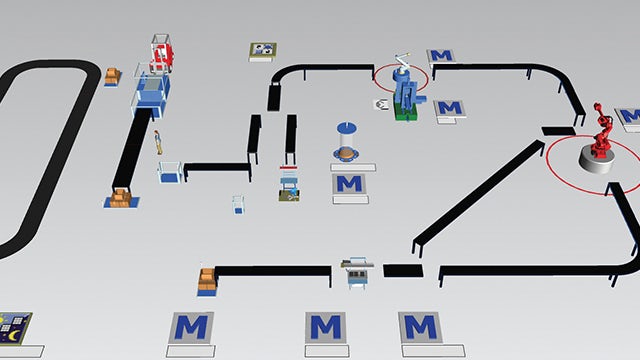
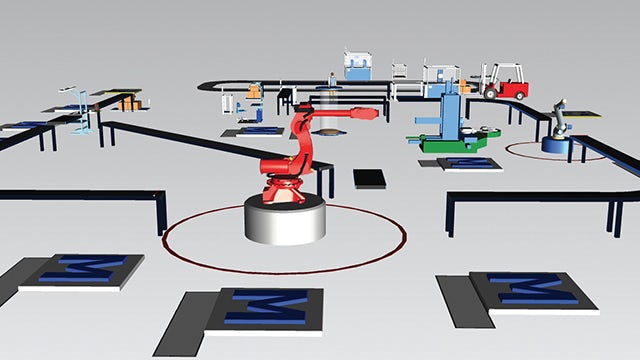
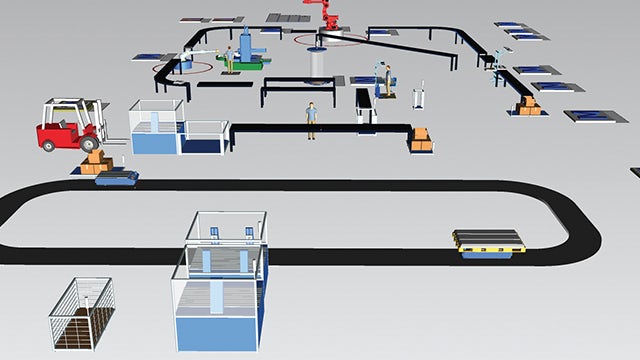
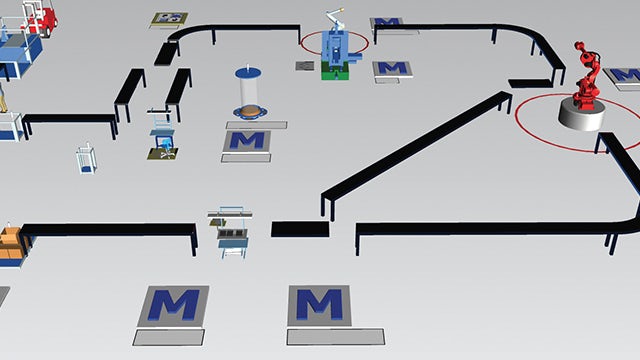
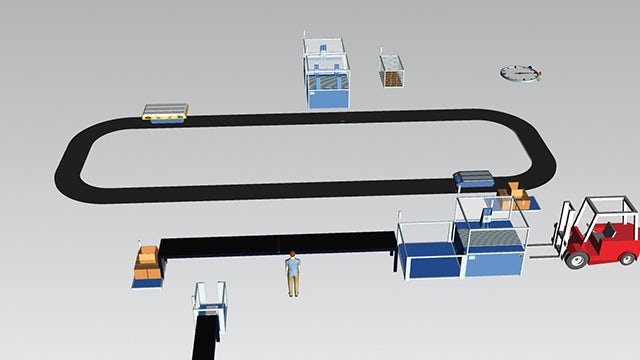
Plans for the future
Oakland University is considering expanding the Plant Simulation internship program into an Industry 4.0 internship program with the addition of internship opportunities that focus on ergonomics and robotics by using the Jack and Process Simulate Robotics tools, respectively. This should be relatively straightforward since the ISE department already offers handson courses on both Jack and Process Simulate Robotics.
The company initially had me using my Plant Simulation model to explore the software and its capabilities. Next, we plan to look at machine and transporter utilization.
Oakland University
